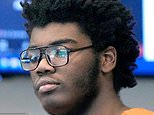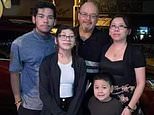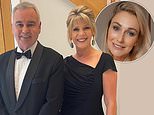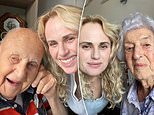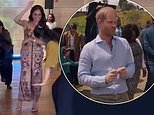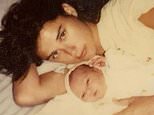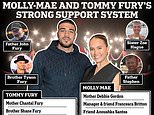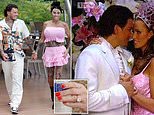'If this is what it sounds like, I'd rather be deaf': Liz Jones found her new polyphonic world with hearing aids overpowering
I don’t know when I became deaf. There wasn’t a moment of realisation. No one spotted there was anything wrong: not parents or teachers. They thought I was shy. I thought I was stupid.
My world of blurry sounds, surprises and lack of understanding was normal. As a child, I had several painful ear infections. I sat up all night with a warm flannel and hot tears but no one thought to investigate. I caught measles, badly, aged 11. No alarms went off but if they had, I wouldn’t have heard them.
Fast-forward 40-odd years and I’m in Specsavers in Exeter, in a room at the back called a Hearing Centre. And even though I’ve lived with being unable to hear properly for a very long time, today is the worst day by far – the one that makes me realise I’m disabled.

Life transforming: Liz Jones thought using a hearing aid might change her life, but would bitterly disappointed with the polyphonic world
The audiologist is showing me my two hearing aids. I’d expected them to be almost invisible but the one for the right ear is red, the left is blue.
The tip – the bit that will be seen by others as it nestles in the canal of my ear – is flesh-coloured, like something someone very old would wear. A tiny aerial protrudes from each. I’m told I also need a special device fitted to my mobile phone, otherwise I will get nasty feedback. I start to feel tearful.
‘Now,’ says the audiologist sitting next to a graph of my hearing and adjusting each device while I hold them in my hot hands. ‘If you leave them in the box with the battery in, the battery will run out. It will last only five or six days, anyway.’
I now feel like Mrs Richards in Fawlty Towers. ‘And they will whistle if you shut them away without taking the battery out first. They will whistle to warn you the battery is about to run out.’
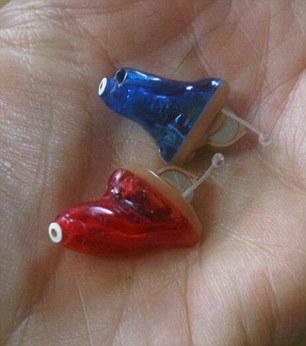
Visible: The hearing aids are colour coordinated - the one for the right ear is red, the left is blue
I am going to whistle. This is a disaster. ‘What will I hear that I can’t hear now?’ I ask him. ‘Um, crickets?’ he said. Useful.
‘And you have to be very careful about hygiene.’ He shows me little brushes and pokey wire things, as if I have just taken possession of a tobacco pipe rather than a £1,995 digital device.
I have to use these to clean the aids each night as ‘the ear, thinking it is being invaded by a foreign object, will produce extra wax. So you have to clean your ears carefully’.
A lot of extra wax. I am going to have seeping ears and on top of that will whistle at inopportune moments. I will have to take my aids out at night and clean them, like false teeth. I can’t do this.
I have become used to being deaf. I manage. I know situations I can cope with, and those I can’t. I can go to the cinema as it’s so loud, but I gave up on theatre in 1982.
As a teenager out in a crowd, I couldn’t follow conversations so I just sat on the periphery, mute. I can’t talk to anyone in the passenger seat when I’m driving as I can’t see their mouth to lip-read.
As I lip-read a lot, I tend not to meet anyone for dinner somewhere dark. I remember on an early date with my future husband (I didn’t tell him I was deaf), we sat in a garden in Tuscany, talking. As it got darker, I became more and more deaf – he thought I was drunk.
When I became a boss on a magazine in 1990, I always kept a keen junior by my side who would translate. As an editor in 1998, during meetings my PA would sit at my elbow, telling me all that was going on, sometimes passing notes.
I avoid situations that floor me. Parties, dinner parties and anything in the gloom. But sometimes I have to show up because of my job. When I was asked to interview the designer Barbara Hulanicki and told by her PA that the venue would be the Wolseley in London’s Piccadilly, my hands started to sweat.
Big, noisy brasseries are my nemesis and I was forced to sit opposite her, desperately trying to read her mouth. It was only later when I read the transcript of the interview (I employ someone to do this for me) that I understood a word.
At a leaving dinner for a colleague not long ago, I couldn’t hear a word of the speeches. The super-bright companion on my right, whom I’d never met (I’m better with people I know well, as it takes time to ‘tune in’), must have thought I was insane, as I kept having vague stabs at answering him.
He soon, thank goodness, turned to his right and left me in my stew of half-caught gossip and jokes that for me never ever have a punchline.
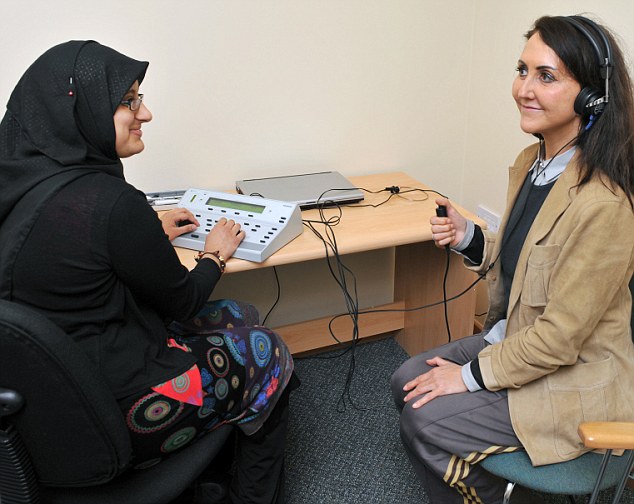
Shock to the system: Being fitted with the hearing aids meant Liz Jones would need time to become accustomed to the extra noise and physical reaction to having an object in her ear
But faced with the man in Specsavers, I realise I quite enjoy quiet my world, in a way. It has defined who I am: definitely not a show-off. Being deaf has also made me discriminating: can I really be bothered to sit opposite that person for four hours? When you have to ask for something to be repeated, and stare at their lips, and puzzle, you have to be pretty damn sure that what is going to come out of their mouth is interesting.
I know I flatten jokes and kill the mood. Being deaf is isolating. It has made me seem more irritable than I really am. I have to concentrate all the time, which means I’m never laughing or nonchalant.
Unlike a person in a wheelchair or the blind, the deaf seem to antagonise everyone around them, who then shout and get exasperated.
On assignment in Africa, the photographer, having watched me conducting interviews with refugees using my two translators (one to talk to the starving Somali mums and translate their replies into English, another to translate his heavily accented words to me), said: ‘I wonder how you can do your job at all. You’re hopeless.’
Being deaf is dangerous, too. Out on my horse, I can’t hear if a car or tractor is coming (thank God I had laser eye surgery only a few years ago. My sight was almost destroyed by measles, too). In Paris not long ago, I was almost run over.
So, finally, I decided I would at least investigate the options, find out just how compromised I really am. I went to Specsavers for a hearing test.
I wore earphones while a lovely woman called Sofia Patel played a series of sounds in each ear. I thought I was doing well, pressing buttons when I heard a beep, until she showed me the graph of my hearing on her screen.

Difficulties: Being hard of hearing meant Liz Jones avoided situations such as parties, dinner parties and anything in the gloom
Each ear was exactly the same, with a rapidly descending arc. She told me I have no hearing at all in the higher register of decibels: these are sounds such as consonants, which is why I always think people are mumbling.
I have ‘severe’ hearing loss. The only stage worse is ‘profound’: someone who is completely deaf.
Sofia was also able to answer a question that has plagued me for years. Why do I go completely deaf in stressful situations, such as when I’m lost and asking directions?
She said it was because when I am stressed, my brain is occupied with coping. Blood supply to my brain goes elsewhere – to my limbs and lungs. And so my brain can no longer fill in the blanks of what I’m hearing. It’s self-perpetuating.
Holding the printout of my hearing is strangely comforting. I now realise I didn’t understand the plot of a certain film not because I’m stupid but due to the fact I’m deaf.
I had thought I’d walk away with my aids there and then, but nothing in my life is that simple. First I must have my ears vacuumed by my GP so the canal is clean. I return a week later to have a mould made of my ear canal, so that the aids can be custom-made.
A couple of weeks later still, I’m in that terrible room in Exeter being told I will whistle and secrete gunk. The aids are put in. My head feels full, as though I’m under water. The audiologist’s voice sounds tinny. ‘That’s normal,’ he says. ‘You are hearing the upper registers.’ I am also told that I will not be able to hear normally for some time. ‘For every year you have been deaf, it will take a month to adjust. Your brain has to learn how to listen.
‘You have to learn to blot out background noise, and hear only what’s important.’ This is called ‘auditory rehabilitation’.
I tell him I only want to wear the aids when out riding and when doing an interview. I don’t want to be disabled and wear something flesh-coloured. What if I’m on a date and get nuzzled? (Not likely, but still . . .)
‘It doesn’t work like that,’ he says. ‘You have to wear them for a couple of hours each day and increase the time incrementally. After a week, you must wear them all the time, taking them out only in the shower and in bed. Your brain won’t adapt otherwise.’
I tell him I don’t want them. ‘But if you leave getting an aid until you are almost completely deaf, your brain will never adapt. You will exist in total silence,’ he replies.
I start to hate him. I have to return in a couple of weeks to have them adjusted (ie turned up a bit, as 100 per cent hearing will come as a shock if it happens all at once).
I go home, the aids lurking in their box. Specsavers has helped change the way people see spectacles: they are now a fashion item, designed by Armani and Prada. It wants the same thing to happen to hearing aids, but they’ll never be made by Tom Ford.
Back home, I put them in. I keep putting them in upside-down. I watch Now, Voyager, which is too old to have subtitles. I still can’t understand a word. Maybe I’m stupid after all. I can hear my own voice, though, and it sounds, apparently, as others hear me. I hate it and so talk even less.
I can’t eat wearing an aid as the crunching is deafening. Walking my dogs, the wind whistles so loudly that I feel as though I’m at sea. But I persevere. Barring a hairdresser on a photoshoot, who knocks one of them out by mistake, no one notices the devices. After two weeks, I’m watching TV without subtitles.
Lunch with a colleague in a brasserie is slightly easier, but I still need to lip-read, though the hearing-aid man says it will get better. Later, I go out for dinner with a friend. As she kisses me goodbye, she says, ‘Well done, Lizzie. That was so much more fun!’
But still, I don’t know that the world is worth hearing. Maybe birdsong, which has come as a revelation. But chatter and gossip? Loud beeping from impatient male drivers behind me? Muzak in lifts? All these sounds are now like uninvited guests in my brain. I prefer my quiet, soft bubble in a way. Being deaf is who I am.
- lspecsavers.co.uk / hearing
Most watched News videos
- Putin's prized £228m supersonic nuclear bomber crashes and explodes
- Shocking moment paedophile drags girl stuffed in suitcase to his flat
- Horrifying moment woman snatches pet dog from owner's front garden
- Horrifying moment thug attacks man with scooter in London
- 'It worries me': Harry slams Elon Musk's spread of disinformation
- 'What kind of creature are you?': Angry man destroys flower bed
- Nick Pisa updates on day one of Harry and Meghan's Colombia tour
- Sickening moment Russian soldier displays Ukrainian severed head
- Prince Harry enjoys game of sitting volleyball with Colombian athletes
- Dramatic moment Ukraine destroys Russian bridge in Kursk region
- Shocking moment a Russian strategic bomber crashes in Siberia
- Tourists watch in shock as migrants get off boat on a Balearic beach


